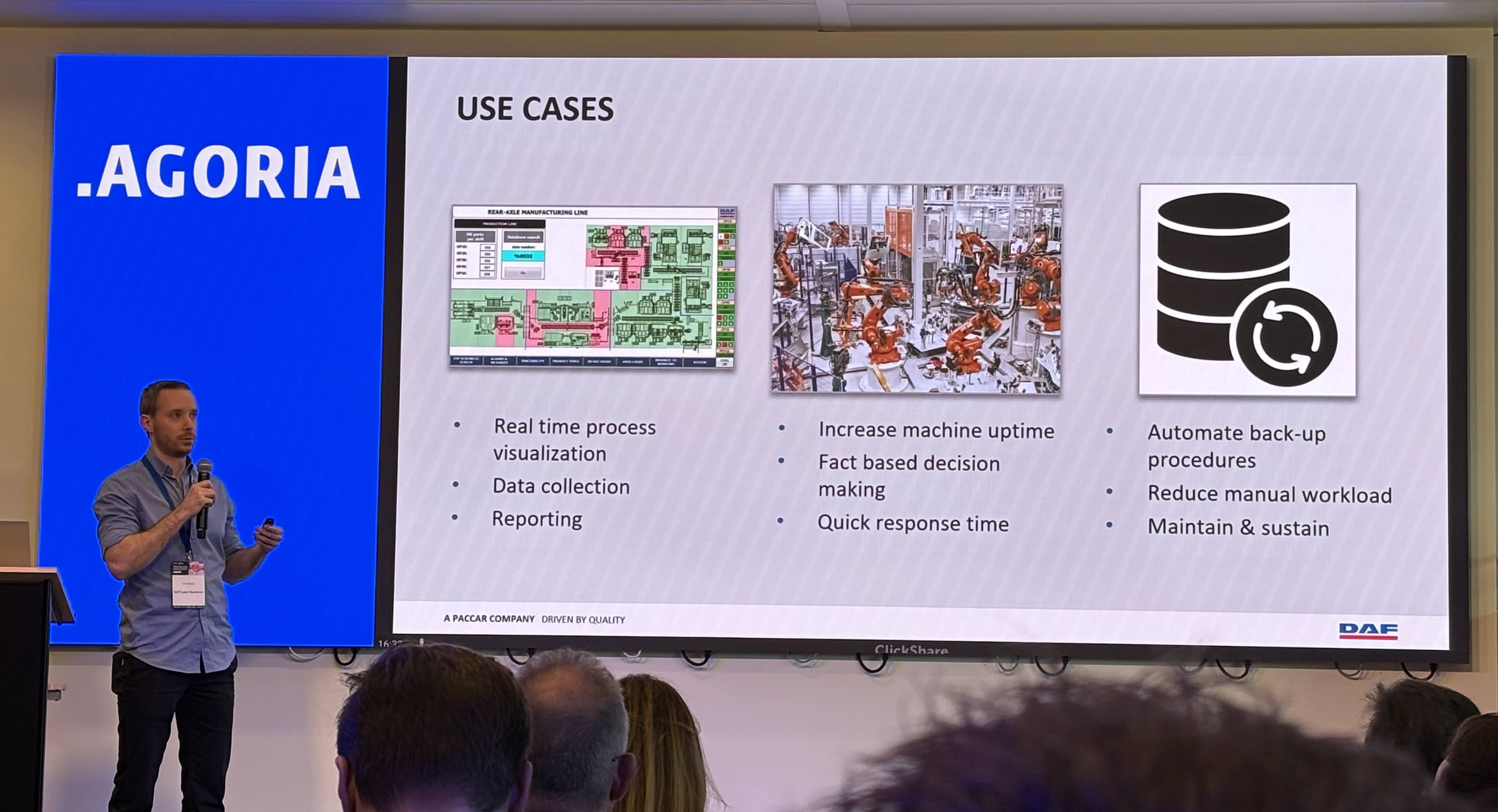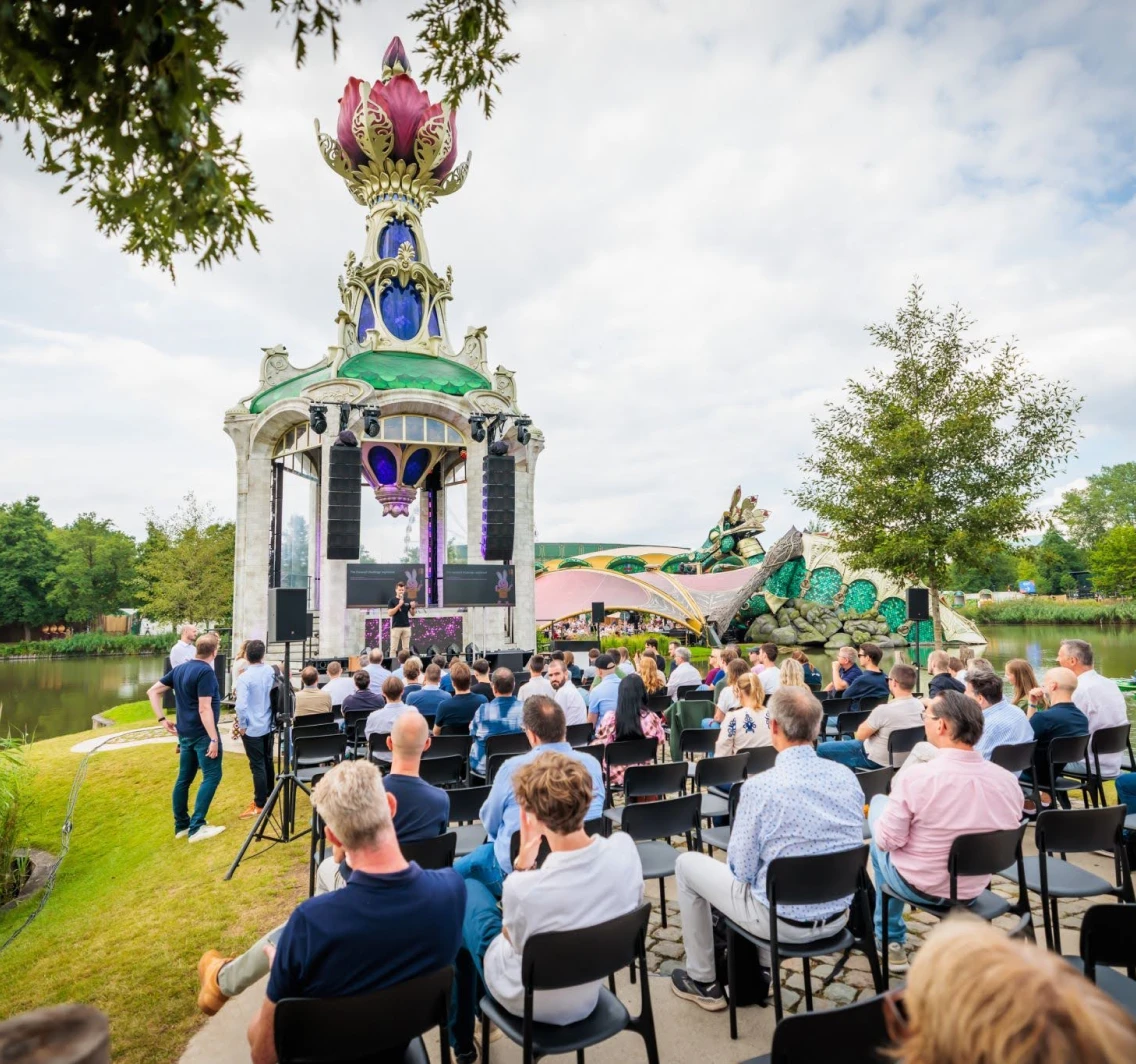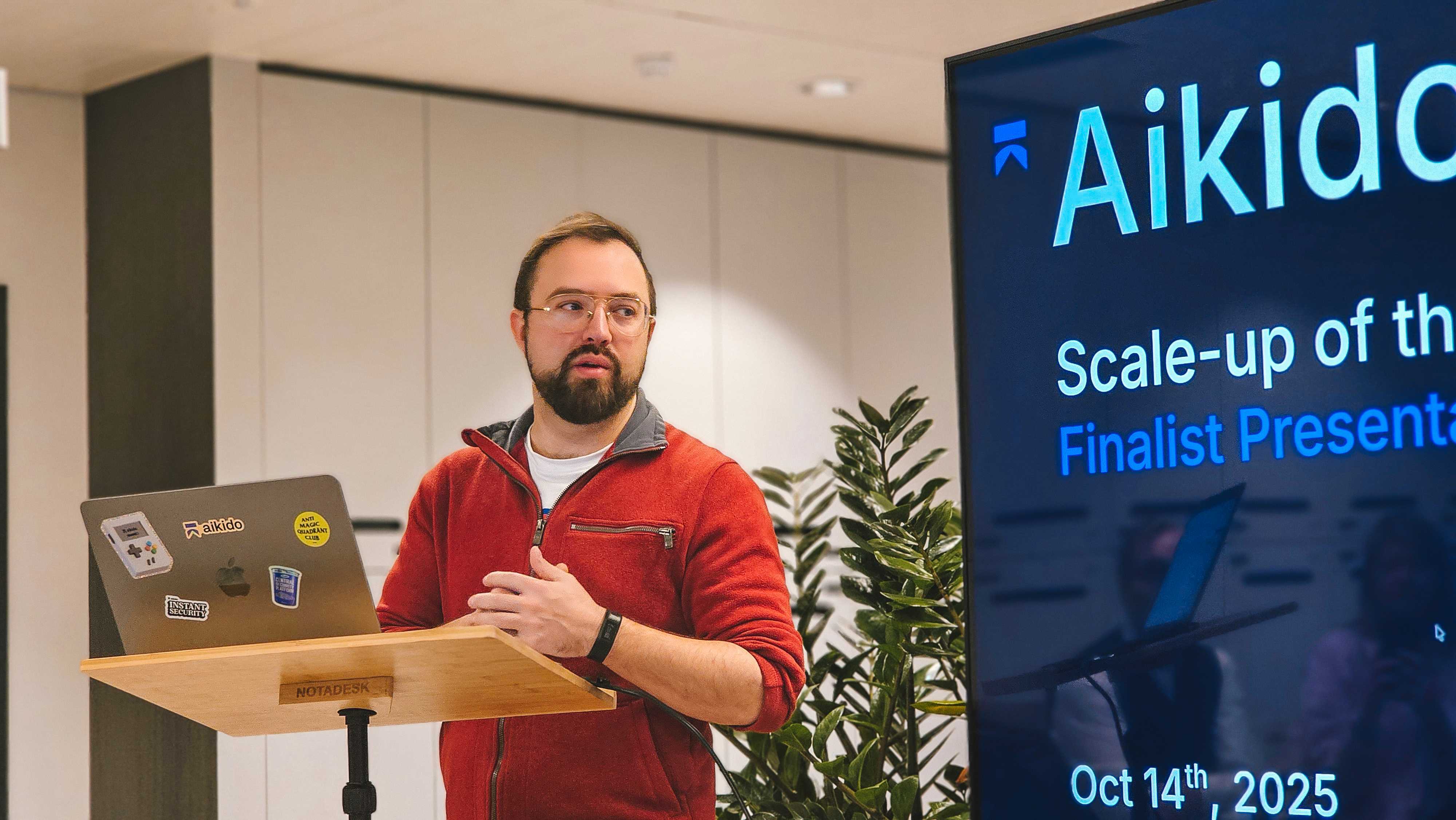How corporates and scaleups partner for success

In October, we gathered in Brussels for our ‘Partnering for Success’ event. Experts and founders shared experiences, best practices and pitfalls on partnerships between corporates and scaleups.
When it comes to corporations and innovation, the image of a tanker quickly springs to mind. A large ship that, no matter how hard you turn the wheel, cannot change course in the blink of an eye. Especially in rough waters or uncertain terrain, there is often a need for small boats to help navigate the ship.
It is an apt metaphor, because startups and scaleups can also strengthen corporations in the business world. These partnerships are a win-win for both, said Fabiola Gulli on October 1 in Brussels. The Innovation Manager at PlugAndPlay gave a keynote speech at “Partnering for Success,” an event organized by Agoria ScaleTech and Scaleup Flanders.
PlugAndPlay has an ecosystem of more than 100,000 startups, and has joined forces with more than 550 corporations worldwide. Gulli gave the example of a large car manufacturer, which partners with small businesses on an ongoing basis. “Over the past decades, they have scouted 6,000 startups to assess 180 technologies in 100-day pilot projects. This ultimately led to 22 implementations in cars, services, and processes,” she said. These partnerships are located in the blind spot between internal R&D and a merger and acquisition: a corporation can innovate faster and cheaper, while a startup gains access to resources and a network that can leverage growth.
Such partnerships go beyond the traditional relationship between customer and supplier. They often approach future customers together or work together to improve the technology.
Watchouts and best practices
Nevertheless, 70 percent of pilot projects set up jointly by companies and startups fail. Gulli sees the main cause as a mismatch in culture, processes, and incentives. “What CEOs want to see is only the tip of the iceberg of the work needed to achieve that,” she said. According to her, there are three important pillars that corporations need to pay attention to.
“You need to focus on something that is strategically relevant, not just nice to have. Avoid building something nobody knows about. Start from the pain points so the C-level feels the impact too, and they can sponsor the project”, Gulli said. “You need to have a clear outcome in mind. Translate vision into problems. Secure the challenge briefing process, and ensure the problem statement is validated. Make sure to focus on killer features”, she continued.
Equally important: don't overengineer it. “Build a fast-track process by simplifying your NDAs, procurement, legal & IT approvals. Build standard NDA and proof-of-concept contracts for collaborations with startups, and pre-allocate budget for these PoCs. You need to decide fast whether you want to continue the project or not. An Italian company we worked with, reduced their procurement from 6 months to 7 days for collaborations with startups when there’s a maximum budget of 10,000 euros and a maximum time investment of 10 days from the client side.”
The real deal: Aperta & DXC Technology
Several corporations and scaleups demonstrated in a duo talk that such corporate partnerships can work well. Luc Claeys (Aperta) and Bart Droogmans (DXC Technology) explained how they moved from tactical support to strategic collaboration.
"We were looking for a Drupal developer for a new project, and bodyshopped an expert at Aperta. During the lockdown, entrepreneurs had costs but no income anymore. The governmental organisation VLAIO wanted to help them, but needed an app to hand out that money. Thanks to the Drupal expertise of Aperta and our team, we built an application in 10 days. In total, 1.3 billion euros were paid out to 400,000 small entrepreneurs thanks to our app. That’s true impact”, Droogmans said.
The companies soon started to scale up the collaboration. “We have biweekly meetings, share our sales pipelines, and started to work on deals together. Aperta created new tools, like the ASUP Updater and ASUP Tester, based on our feedback.”
“ASUP Updater is our tool for automatic deployment for security updates to specific platforms”, Claeys explained. “DXC was the first customer. Our partnership brought us stability and predictability, it accounts for half of our revenue in the last 7 years. It’s a very open relationship. We see all the leads they are working on, and the other way around. We got valuable learnings from an international way of working. DXC Technology treats us as an equal and trusted partner. It took time to get started but that’s totally understandable in a large organization.”
Droogmans also shared some more advice for companies who want to collaborate: “Focus on acceleration. Define if and how you are complementary or not. Identify the strengths and weaknesses of both parties. Draw a line between who wants to deliver what. Be transparent, because impact does not just happen: it requires vision, transparency and collaboration.”
The real deal: Energis & Sedico
Dieter Schallenbergh (Energis) and David Spetter (Sedico) also spoke about their collaboration, which has since led to projects for KFC, Volvo, and H&M, among others. “It started when we discovered we have a mutual client”, Spetter said. “Sedico delivers a one-stop-shop solution for managing and reducing location-related costs such as rent, service charges, energy, local charges, and waste. We have more than 60,000 managed locations, and achieve more than 15 million euros in annual savings for clients, mostly by checking and correcting invoices. Energis creates software that is used for the energy management of retailers, so that’s why we’re a perfect match.”
Energis and Sedico joined forces to co-create specific features, such as automated invoice checks. “When you’re a facility manager, you’ll have to forecast your energy consumption for the next years. That’s why you need to be able to rely on the system. Based on continuous feedback, Energis could improve its tool so we can together help our mutual customers better than before.”
The reverse pitches
Several corporations also gave reverse pitches at the Partnering for Success event. Companies such as Daikin and DAF Trucks talked about the challenges they are facing, in the hope of finding a scaleup that can help them. David Dewulf from ATOS explained how they are looking for a partner in the field of extended AR or VR for immersive collaboration, and Jurgen De Backer from CompuGroup talked about the administration time of first-line care professionals they aim to cut. Software developers who have solutions for these challenges can count on a network of potential customers in more than 60 countries thanks to CompuGroup. That’s truly partnering for success!
Is your tech company ready to scale up?Learn from experienced speakers and peers

Read next
View all









